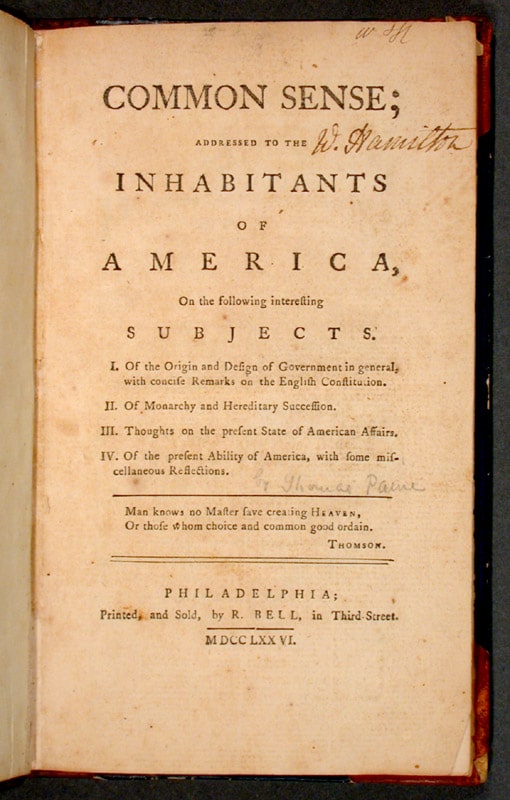Contents

Contents
Common Sense was a political pamphlet published by American Patriot Thomas Paine on January 10, 1776, advocating for American independence from Great Britain.
Summary
The second half of 1775 was a crucial time in American history.
The Revolutionary War had started in April of that year, and the colonists had begun to establish more organized militias. The Continental Army had been formed, and George Washington was appointed Commander-in-Chief.
However, despite a strong showing at the Battle of Lexington and Concord, it remained to be seen whether the Patriots could put up a fight against the might of the British Army, in the long term.
To win the war, the Patriots needed popular support – to supply their army, fund their cause, and fight the British. But at the time, the idea of rebelling against the British Crown was still unthinkable – even to those who did not consider themselves Loyalists.
While many people supported the idea of popular resistance against the Intolerable Acts, and other acts of British oppression, achieving independence from Britain and separating from the British monarchy was out of the question for many.
Thomas Paine began writing Common Sense in late 1775, and published the 47-page document anonymously in Philadelphia on January 10, 1776. It was soon widely distributed throughout the Thirteen Colonies as a printed pamphlet, and saw immediate success.
Common Sense argued:
- Monarchical rule of the Thirteen Colonies was illogical. Paine criticized the British monarchy and hereditary succession, calling it an absurd and unnatural form of government that led to corruption and oppression.
- British rule harmed America. Paine argued that Britain exploited the colonies economically and hindered their growth.
- The colonists were a united, distinct people, not merely subjects of Britain.
- Independence was the best solution to the conflict between Britain and the Thirteen Colonies. America had the resources and capacity to be self-sufficient.
- A republic is preferable to monarchical rule. Paine advocated for a democratic republican government where citizens could more directly influence policy decisions, aligned with Enlightenment ideals of equality and freedom.
- All men are created equal, and a king’s ability to control his subjects is unjust.
Significance
Common Sense played a significant role in turning the tide of public opinion against the British, and introducing the idea of independence from Great Britain to ordinary citizens of the Thirteen Colonies.
Immediately upon publication, Common Sense was extremely popular. Estimates as to the number of copies sold vary, but it is thought that as many as 500,000 Common Sense pamphlets were distributed throughout the Thirteen Colonies by the end of the Revolutionary War.
The pamphlet’s contents were read aloud in taverns and public meeting places, such as the Liberty Tree in Boston Common, and Committees of Correspondence helped spread the message to smaller villages and settlements. As a result, Paine’s arguments were heard by almost the entire population, even among those who could not read.
Common Sense resonated strongly throughout the Thirteen Colonies, and even further afield, where it was published in France, and the United Kingdom.
Paine’s work was controversial, given the strong loyalties that remained towards the British Crown. However, this controversy led to even greater awareness of the pamphlet, and many ordinary citizens agreed with Paine’s arguments.
Paine chose specifically to address the common people in his calls for American independence, using simple, direct language, which contributed to his pamphlet’s effectiveness.
Common Sense also played a role in influencing the opinions of political leaders who were still on the fence about attempting a complete separation from Great Britain, leading the Founding Fathers to adopt the Declaration of Independence just six months later.

